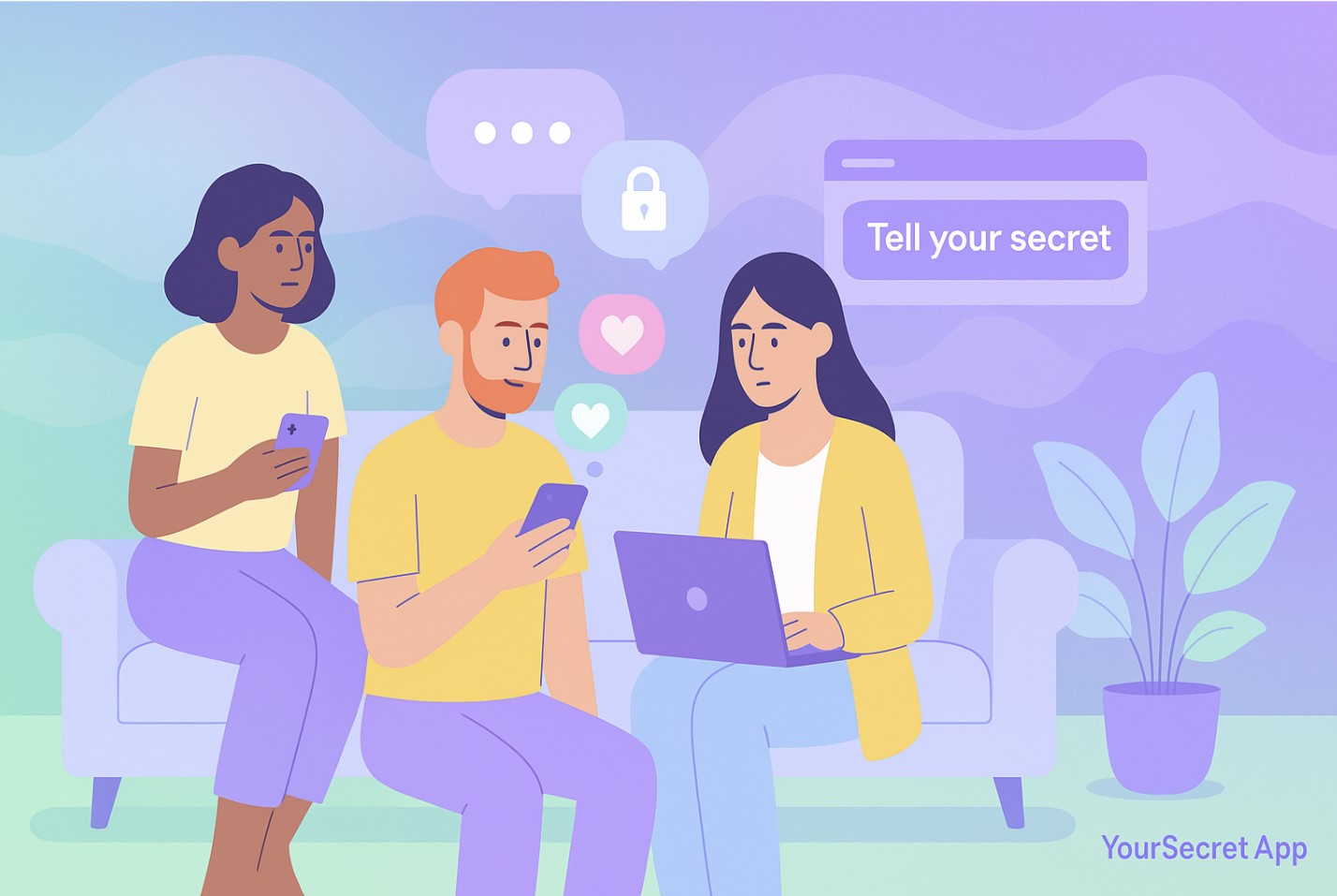Millennials in the Mirror: How Generation Y Navigates Secrets, Identity, and Community in the Age of Online Platforms

Millennials in the Mirror: How Generation Y Navigates Secrets, Identity, and Community in the Age of Online Platforms
Born between the early 1980s and the late 1990s or early 2000s, Millennials—or Generation Y—are the bridge between the analog past and the digital future. They played with cassette tapes and witnessed the rise of TikTok. They burned CDs and now binge podcasts on Spotify. They came of age during the dot-com boom and matured through the chaos of the social media revolution.
Now in their late 20s to early 40s, Millennials are no longer the "new kids" on the internet block. They are professionals, parents, leaders—and digital veterans. But their behavior on social media continues to evolve in surprising ways. In 2025, their interaction with platforms—particularly those involving vulnerability, privacy, and emotional storytelling—reveals a deep hunger for authenticity, healing, and meaningful connection.
From Broadcasting to Belonging
Early social media was performative. Millennials, who made Facebook and Instagram household names, were the first to master the art of self-curation. Polished vacation shots, filtered selfies, witty tweets—they built digital personas like brands. But over time, this relentless performance has grown exhausting. Many now report feeling burnt out by algorithmic attention-seeking and overstimulation.
Enter the rise of the secret sharing app—a quiet revolution in how Millennials engage online. These platforms, where users can share your secret anonymously, offer emotional refuge from the spectacle. Instead of likes, there is listening. Instead of branding, there is baring. The shift is profound: it moves Millennials from broadcasting to belonging.
Why Secrets Matter Now
For a generation that came of age during an “always-on” culture, privacy has become a premium commodity. Millennials remember a time before everything was public, before digital footprints mattered. And now, in a world of surveillance capitalism and data monetization, the allure of an online secret platform is not just novelty—it’s necessity.
Millennials use these platforms not only to vent but to process identity, trauma, relationships, and insecurity. Posts range from “I hate being a parent” to “I miss my ex after 10 years.” These aren't cries for attention—they're acts of self-rescue. The ability to tell your secret—free from judgment or consequence—is an emotional detox many didn’t know they needed.
This behavior isn’t regression. It’s evolution. As psychological maturity deepens, Millennials no longer seek validation—they seek resonance. And that’s what these secret-sharing spaces offer: echo, empathy, and emotional release.
Digital Nostalgia and Emotional Complexity
Millennials are deeply nostalgic. It’s no coincidence that Y2K aesthetics, retro gaming, and early-2000s pop culture are making a comeback in 2025. But their nostalgia isn’t just cultural—it’s emotional. They crave a return to digital spaces that felt simpler, more genuine. The secret sharing app era taps directly into that longing.
The anonymity of these platforms strips away pressure. You don’t need the perfect caption. You don’t need the “right” audience. You just need honesty. Many Millennials find this simplicity profoundly freeing. They share secrets they’ve never uttered aloud. In doing so, they often receive responses like, “I feel this too,” or “I thought I was the only one.”
It’s in these micro-moments that we glimpse the real emotional behavior of Generation Y: seeking not exposure, but intimacy; not likes, but lightness.
Your Secret, Your Story, Your Power
There’s a deeper philosophical undercurrent here—what we might call your secret meaning. For Millennials, secrets are no longer things to hide, but truths to unburden. Sharing them anonymously becomes a way of reclaiming agency over one’s narrative.
This generation came of age watching reality TV, absorbing the rise of online confessional culture, and witnessing the blurred lines between personal and public. Now, platforms that let them share without identity are more than tools—they’re therapeutic stages.
Some secrets spark laughter; others, healing. A user might write: “I’m successful but still feel like a fraud.” Another: “I’ve been married 10 years and think I married the wrong person.” These admissions, anonymized but authentic, carry emotional weight. And in reading each other’s truths, Millennials find a new kind of solidarity—a quiet chorus whispering, “You’re not alone.”
The Return of the Forum, Reinvented
Remember forums? Reddit threads? Tumblr confessionals? Millennials were there in the beginning. Today’s secret-sharing platforms echo that ethos—threaded posts, user-driven responses, and minimal design. It’s a digital return to community without chaos.
But there’s more structure and sensitivity now. AI moderation helps detect harmful content. Emotional tagging helps route secrets to the right themes—grief, anxiety, romance, parenting. It’s less chaotic, more curated—but not in the artificial influencer sense. Here, curation means care.
And that’s what Millennials are responding to. Platforms that care—about their time, their boundaries, their truths.
Beyond Social Media: Toward Social Healing
Millennials have seen the highs and lows of digital life. They’ve lived through MySpace breakups, Facebook scandals, Instagram comparison spirals, and Twitter wars. But they’ve also experienced online community at its best—mutual aid, shared grief, global movements.
In 2025, they’re choosing a new direction. Less spectacle, more sincerity. Less branding, more bonding. The online secret platform becomes a vessel for social healing. Not just in the “confess and feel better” sense—but in the collective realization that we’re all navigating invisible weights.
To tell your secret is to acknowledge those weights—and to invite others to hold them, even for a moment.
Conclusion: Digital Depth Over Digital Display
Millennials are done performing. They want platforms that honor their complexity. That hold space for both celebration and confession. For joy and jaggedness. For the things we say out loud—and the ones we never dared to.
Secret-sharing platforms represent more than a trend—they mark a generational pivot. Toward truth-telling without trauma. Toward community without compromise. Toward digital intimacy over digital indulgence.
As Millennials grow older, their influence on digital culture deepens. And their message is clear: In a world obsessed with data, metrics, and appearances—sometimes the most radical thing you can do is simply tell the truth. Especially when no one knows your name.